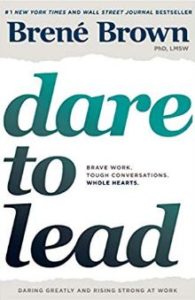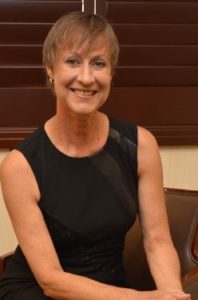 You may be wondering what a photo of an idyllic, remote, small Tahitian island resort has to do with empathy, trust and connection!
You may be wondering what a photo of an idyllic, remote, small Tahitian island resort has to do with empathy, trust and connection!
This time last week, my husband and I were on vacation in this idyllic location and I took this photo from my kayak. It was truly the best island vacation I’ve ever had. I swam and snorkeled in the warm ocean lagoon waters. The fish around the coral were beautiful. We chose a beach bungalow and the ocean was steps away.
In the weeks leading up, I had a fear about going to this remote location, that I would be bored. There was no internet in the bungalow, only at front desk area (which was a blessing). There were no activities other than swim, snorkel, kayak, and relax. Not even a lot of food choices. Even to walk around the island took no more than 15 minutes.
I had plenty of reading and audio material to engage with, both business-related and fantasy reading. I had one physical book I’d just purchased, and it ended up being what caught my attention to read. It’s called, Dare to Lead, by Brene Brown.
And it’s a WoW read! I am now recommending this as the Handbook for moving toward higher mastery of their [Coaching] Presence.
Brene is well known as a research professor at the University of Houston in the United States. Her areas of study and writing are on courage, vulnerability, shame and empathy. Brene’s TED Talk, “The Power of Vulnerability” is one of the most-viewed TED talks in the world.
In Dare to Lead, Brene refers to writings from her previous books, as well bringing in new research on the skills and practices around leadership. Her company takes these concepts into companies around the globe. To me, this is the most up-to-date and leading-edge set of approaches to leading in today’s complex world. This book is packed full of goodies!
Update: Brene now has a fantastic special on Netflix called, The Call to Courage.
For those who have read my Ten Characteristics of MCC Skill Level, so many of those characteristics are written about in this book; Connection, Presence, Spaciousness, Emotional Content, Ignore Nothing, Trust, and Vulnerability. Hmmmm, I wonder if Brene read my Ten Characteristics and that’s how they ended up in her book (hehehe!).
Empathy and masterful coaching presence
Brene has written 44 pages on empathy alone in this book, along with practices and ideas for how to operationalize in the workplace.
Brene defines empathy as, “Connecting to the emotions that underpin an experience.” Brene writes, “Empathy is one of the linchpins of cultures built on connection and trust – it’s also an essential ingredient for teams who take risks and show up for [challenging conversations].”
Empathy is a key attribute of the presence of a masterful coach. Notice these five skills that Brene names. They all are sound coaching presence skills as well:
Empathy Skill #1: To see the world as others see it, or perspective taking
Empathy Skill #2: To be non-judgmental
Empathy Skill #3: To understand another person’s feelings
Empathy Skill #4: To communicate your understanding of that person’s feelings
Empathy Skill #5: Mindfulness
Brene draws on a definition of Mindfulness from Kristin Neff, “Mindfulness is taking a balanced approach to negative emotions so that feelings are neither suppressed nor exaggerated.
Being with the fullness of your client
Many coaches choose to ignore (or don’t know what to do with) a client having any negative emotion, and this can leave the client feeling unheard. At the same time, the degree a coach can be with such emotions allows the client to pass through them, and often gain clarity about action. But you have to be with, not skip over, emotions. Empathy is the pathway.
My experience is unacknowledged negative emotions become exaggerated. Coaching is less effective because the client is still in their emotions. Being with and allowing the client to express, understand and move through emotions is a normal part of being human. If you’ve ever felt anxiety from feeling overwhelmed with work, then you have ‘negative emotions’ that might benefit from being acknowledged and owned.
Connection and Trust
The degree to which you can be with a client (and yourself) and meet them where they’re at in the fullness of being human, is the degree of connection or disconnection you experience with your client (and yourself).
When we felt seen and heard without judgment, trust and intimacy can deepen. Without it, coaching most often stays transactional.
The presence of a coach who is fully human (okay with their full range of emotions) will often find a normally What-focused or strategic client, to reveal more about their inner world of feelings and experience. Working on our own comfort level with emotions, and empathy, has a huge impact on our presence, more than we may ever know with clients.
Mastering being with the humanity of your client
Empathy is a key characteristic of what sets a masterful coach apart; the coach is present to the full humanity of their client. No matter what position our client has attained, how senior, or how experienced they are in any part of work or life, we all experience loss, hope, desire, dreams that don’t turn out, sadness, and other normal human emotions.
The longer you are on the planet, the more likely you’ve experienced something that opens your heart, whether that be joyful or sorrowful.
Leadership and Coaching
Brene defines a leader as, “Anyone who takes responsibility for finding the potential in people and processes, and who has the courage to develop that potential.”
That sounds a lot like what a professionally trained coach does!
We may not be the ones to find the people we coach, especially in a corporate context where we might be part of a larger intiative. Yet our role is to not only develop the potential in the people we coach, but connect or reconnect our client to their inner knowing about themselves. To build self-trust, self-knowledge, self-awareness, self-confidence, that translates into a happier, healthier and more engaged human being.
Vacation time and creativity bursts
Back to what I wrote at the beginning about fearing feeling bored being on such a remote island, no matter how idyllic. Yes, I felt some boredom on day 2 of 7, yet it was a necessary step to unwinding and slowing my pace down to ‘island time.’ I swam and snorkeled like I had fins! I also had the time to luxuriate in reading Dare to Lead (and other learning materials). My creativity also kicked in after day 3, and a new program began to be birthed. It’s too embryonic to share yet, however later in 2019 or 2020 you can expect to see something in my newsletter.
I’ve always practiced self-care in the form of regular vacation time, especially where I get out of my daily life and comfort zone, like being in a non-english speaking country like Tahiti (Polynesian and French speaking in the main).
Some of my best creativity and ideas burst forth on vacation. I not only recharge physically, but also spiritually, mentally, emotionally and creatively. My husband, Michael, is in the same field and is a curious person about the world, and an engaged learner. Which makes for a deeply satisfying experience too.
In Closing…
Consider how comfortable you are with being fully human, the messiness of being human.
How is your empathy toward yourself?
What loss have you experienced that has opened your heart? Or perhaps has closed your heart from feeling and experiencing the fullness of being human.
How is loss affecting you?
Once through a loss, how can you possibly view it from a different perspective?
When was the last time you took a vacation where there was enough ‘white space’ so you unhooked from your usual busyness?
How can you bring some white space into your life, and see what magic might arise? Perhaps you will feel afraid of white space time. Just notice. Whatever emotions you experience are okay.
Are you preparing for your first or next ICF Credential?
Do you want to “Sharpen the Saw” as a Coaching Professional?
One Mentor Coaching Group Program is are now filling on a first registered and paid basis. Maximum of 6-10 participants per group.
Group #36 is MCC skill level – April 3, 2019 (1 place remains)
Start early with your mentoring requirements in the year of your renewal, especially if you plan to submit for your next credential instead of renew your current one. You will need to submit your application by mid August in order to accommodate the 18 week ICF process.
 I offer a rich, experiential mentor coaching group and individual program that has many exclusive offerings for our participants. You can read some testimonials here
I offer a rich, experiential mentor coaching group and individual program that has many exclusive offerings for our participants. You can read some testimonials here
I have been trained by the ICF to assess using the PCC Markers. I also regularly assess for the ICF MCC and ACC credentials.
One of the unique offerings is an extensive library of MCC, PCC and ACC coaching sessions for participants to listen to, evaluate, debrief, and learn from, along with The Target Approach to demystifying the ICF core competencies. These are incredibly valuable learning tools, and will accelerate your understanding of competency distinctions.
Carly has created products to more deeply understand Establishing the Coaching Agreement and Ten Characteristics of MCC Skill Level.
Here’s where you’ll find more about The Mentor Coaching Group

Beautiful Post! Thank you for sharing. Now I want to read the book.
Thank you so much Nanor. I hope you do read the book. And I just added a second photo to the post from inside our Tahitian bungalow looking out to the ocean; the creative space 🙂 Warmly, Carly